
- Carrots help you see in the dark
- Chow down
- Basket Case
- Bite the bullet
- Larger than life
- Balls to the wall
- Chance your arm
- Over the top
We’ve all used these phrases at some point or other, but have you ever stopped to think about where they came from? We teamed up with one of our military expert Steve to delve into some common phrases that actually have wartime origins carrots for example!!
Carrots help you see in the dark
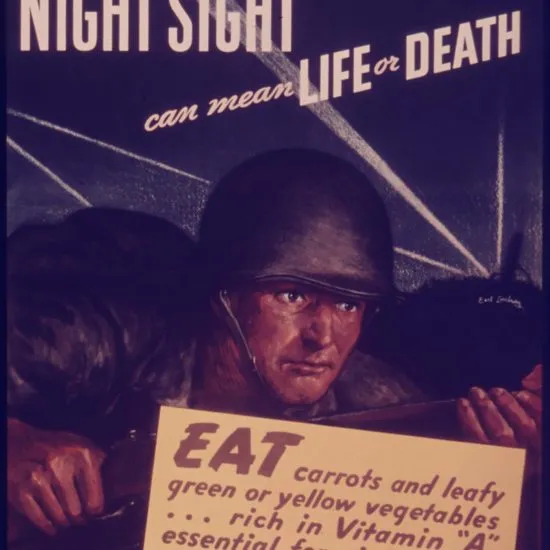
While carrots contain all the essential vitamins needed for good eye health, they don’t help you see in the dark. Back in World War II Britain made the ‘blackout’ compulsory. All lights had to be off in the streets and windows barred so as to make the country go dark. This was so enemy planes would find it harder to hit their targets.
It wasn’t long before British planes were actually able to shoot down bombers before they even reached us. This is because we invented the radar, allowing us to ‘see’ in the dark.
We didn’t want the opposition to find out about this, if they got their hands on our new technology we’d lose our advantage. So, the Ministry of Defence said we were able to shoot down planes in the dark because we fed our pilots carrots.
The slogan became a firm part of propaganda advertising at the time, so it’s not surprising that it stood the test of time as an old wives' tale.
Chow down
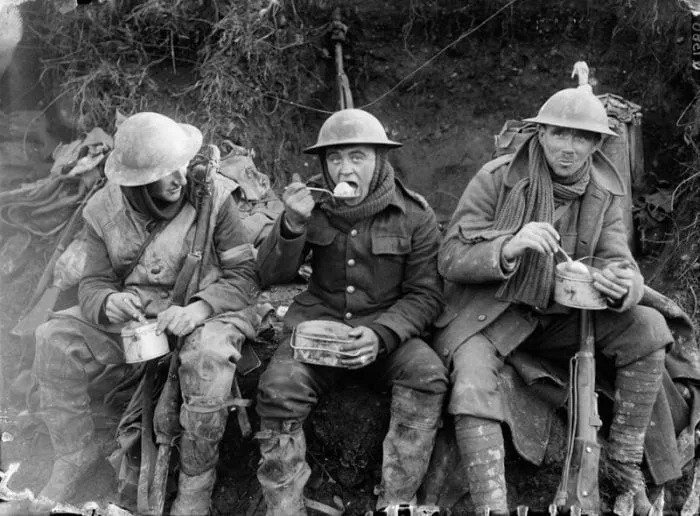
Today it means To eat a lot of food quickly or enthusiastically but it was first used by the U.S. military during WWII. Chow became a western slang term for food because the Chinese had a reputation for eating dogs. Though interestingly the phrase came into existence before the ‘Chow’ breed of dog was named.
Basket Case
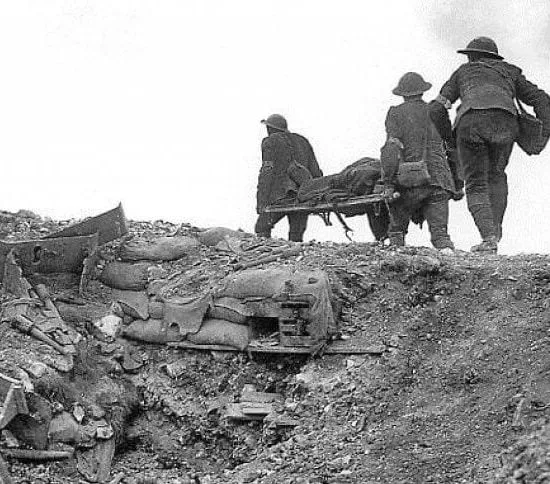
Depending on who you talk to this phrase today can mean totally helpless, a mentally unwell person, or someone who is a bit quirky.
In 1919 the Surgeon General of the US army denied the existence of ‘basket cases’ in hospitals. It seems there were rumours of soldiers returning from the war with no arms and no legs having to be carried around in baskets.
The term dropped out of use once the war had ended but re-surfaced with the same meaning in WWII.
Bite the bullet
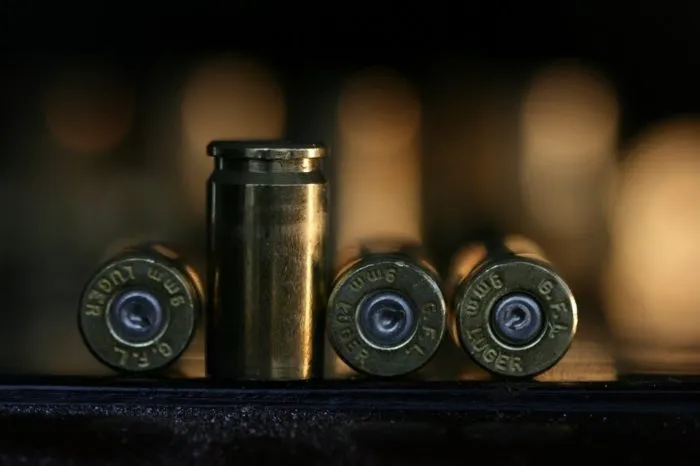
This term was originally used around 1796. The definition remains surprisingly intact. Today it means to just get on with something or to brace yourself for things to come. One of the earliest mentions of the phrase can be found in Francis Grose's A Classical Dictionary of the Vulgar Tongue.
“Nightingale. A soldier who, as the term is, sings out at the halberts. It is a point of honour in some regiments, among the grenadiers, never to cry out, or become nightingales, whilst under the discipline of the cat of nine tails; to avoid which, they chew a bullet.”
Larger than life
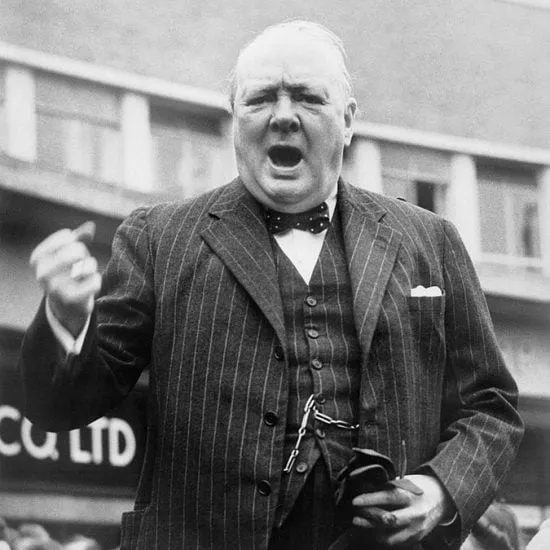
Meaning someone who is peaceful one, confident, and more outlandish than most.
The term was actually first recorded in The New Yorker to describe the wartime Prime Minister Sir Winston Churchill.
Balls to the wall
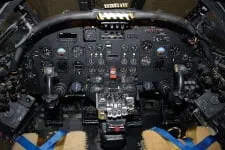
To go all out, pedal to the metal.
The term has its origins in aviation though it’s not clear whether this was first used by Korean pilots or US pilots. The control stick of a plane usually has a ball on top of it. When the control stick is pushed towards the cockpit or ‘firewall’ it would sends the plane into a dive. So literally putting the ball to the wall saw the plane diving at maximum speed - going all out.
Chance your arm
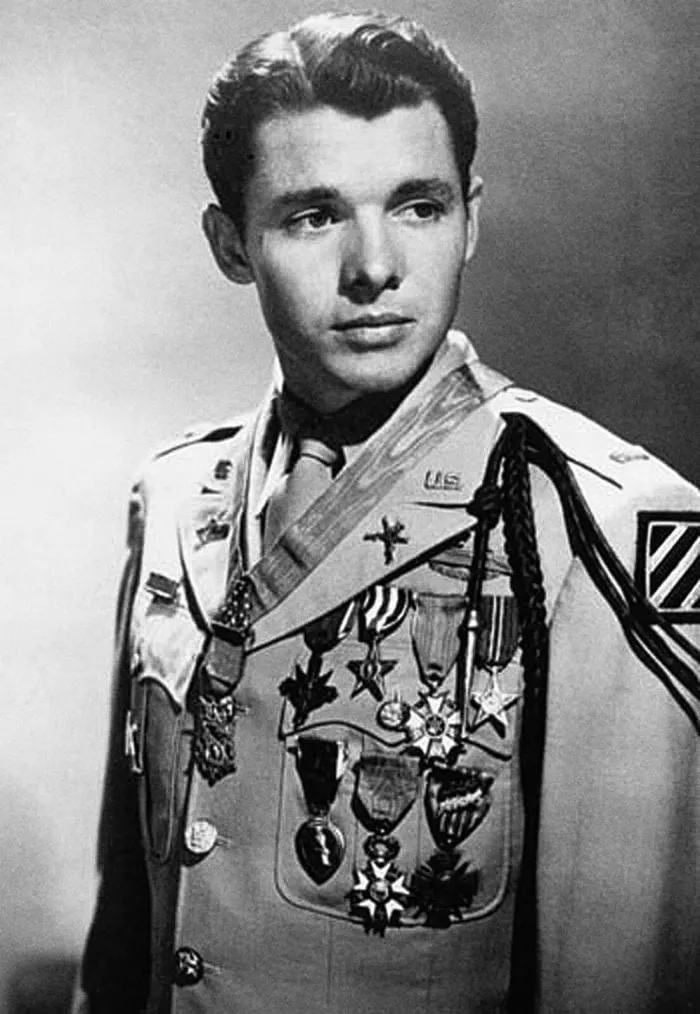
To take a risk in the hopes of achieving something worthwhile.
The origins of this British phrase are disputed. What isn’t in question is how it was used by military personnel during the war. It is used to refer to the stripes on the arm of your uniform. So chancing your arm meant putting your promotions and accolades at risk.
Over the top
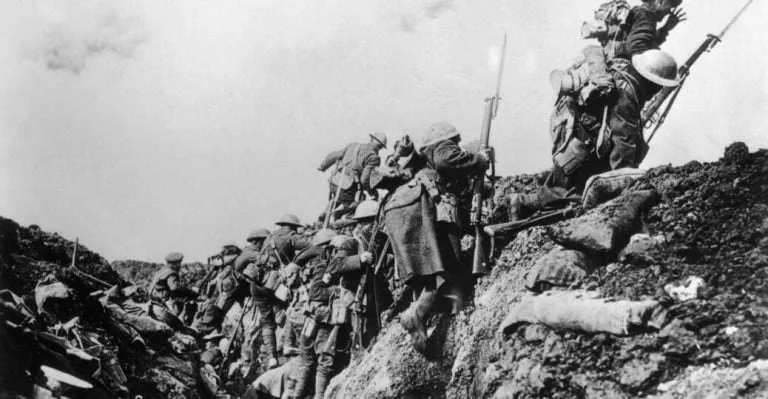
Most of us have used this at one time or another to mean that something is a bit excessive or a bit much but its origins are a little grimmer. To go over the top during the war effort meant to leave the trenches and make a run towards the enemy. Very few people survived an over-the-top push.
Have you got a question about wartime phrases for our military expert Steve? Leave them in the comments for an answer :)
Think of any phrases we’ve missed. Leave them in the comments!
Read more fascinating vintage stuff.
Ask us anything, and we'll reply as soon as possible
Our friendly online customer support team will answer your questions seven days a week.
